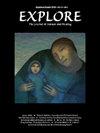Investigation of the effect of emotional freedom technique (EFT) on sleep quality and fatigue in young people with sleep problems: Randomized controlled study
IF 2.2
4区 医学
Q3 INTEGRATIVE & COMPLEMENTARY MEDICINE
引用次数: 0
Abstract
Background
Insomnia is a condition that negatively affects the quality of life, daily functioning, and academic success of university students.This study aims to investigate the effect of the Emotional Freedom Technique (EFT) on sleep quality and fatigue in young people with sleep problems.
Materials and methods
This study is a randomized controlled trial. A total of 64 students were included in the study and divided into two groups. There were 32 participants in the intervention group and 32 in the control group. The intervention group received two EFT sessions with a four-week interval, while no interventions were applied to the control group. Data were collected using a questionnaire form that included socio-demographic characteristics, the Insomnia Severity Index, the Epworth Sleepiness Scale, the Pittsburgh Sleep Quality Index, and the Fatigue Severity Scale. A p-value of <0.05 was considered statistically significant.
Results
In the intervention group that received EFT, significant differences were found compared to the control group in terms of Insomnia Severity (t= 6.732, p= 0.001), Epworth Sleepiness Scale (t= 2.16, p= 0.034), and Pittsburgh Sleep Quality Index (t= 3.934, p= 0.001) scores. However, no significant difference was found in Fatigue Severity Scale scores (t= 0.910, p= 0.366). Nevertheless, the expected fatigue levels were maintained.
Conclusion
According to the results, the application of EFT to young individuals with insomnia reduces insomnia and sleepiness issues and improves sleep quality.
情绪释放技术(EFT)对青少年睡眠问题患者睡眠质量和疲劳的影响:随机对照研究
失眠是一种对大学生的生活质量、日常功能和学业成就产生负面影响的疾病。本研究旨在探讨情绪释放技巧(EFT)对有睡眠问题的青少年睡眠质量和疲劳的影响。材料与方法本研究为随机对照试验。共有64名学生参与了这项研究,并被分为两组。干预组32人,对照组32人。干预组接受两次EFT治疗,间隔四周,而对照组不进行干预。数据收集采用问卷调查形式,包括社会人口特征、失眠严重程度指数、爱普沃斯嗜睡量表、匹兹堡睡眠质量指数和疲劳严重程度量表。p值为<;0.05被认为具有统计学意义。结果EFT干预组失眠严重程度(t= 6.732, p= 0.001)、Epworth嗜睡量表(t= 2.16, p= 0.034)、匹兹堡睡眠质量指数(t= 3.934, p= 0.001)评分与对照组比较差异均有统计学意义。但两组在疲劳程度量表评分上无显著差异(t= 0.910, p= 0.366)。尽管如此,预期的疲劳程度仍然保持不变。结论EFT应用于青少年失眠症患者可减少失眠和嗜睡问题,改善睡眠质量。
本文章由计算机程序翻译,如有差异,请以英文原文为准。
求助全文
约1分钟内获得全文
求助全文
来源期刊

Explore-The Journal of Science and Healing
医学-全科医学与补充医学
CiteScore
3.00
自引率
8.30%
发文量
179
审稿时长
25 days
期刊介绍:
EXPLORE: The Journal of Science & Healing addresses the scientific principles behind, and applications of, evidence-based healing practices from a wide variety of sources, including conventional, alternative, and cross-cultural medicine. It is an interdisciplinary journal that explores the healing arts, consciousness, spirituality, eco-environmental issues, and basic science as all these fields relate to health.
 求助内容:
求助内容: 应助结果提醒方式:
应助结果提醒方式:


